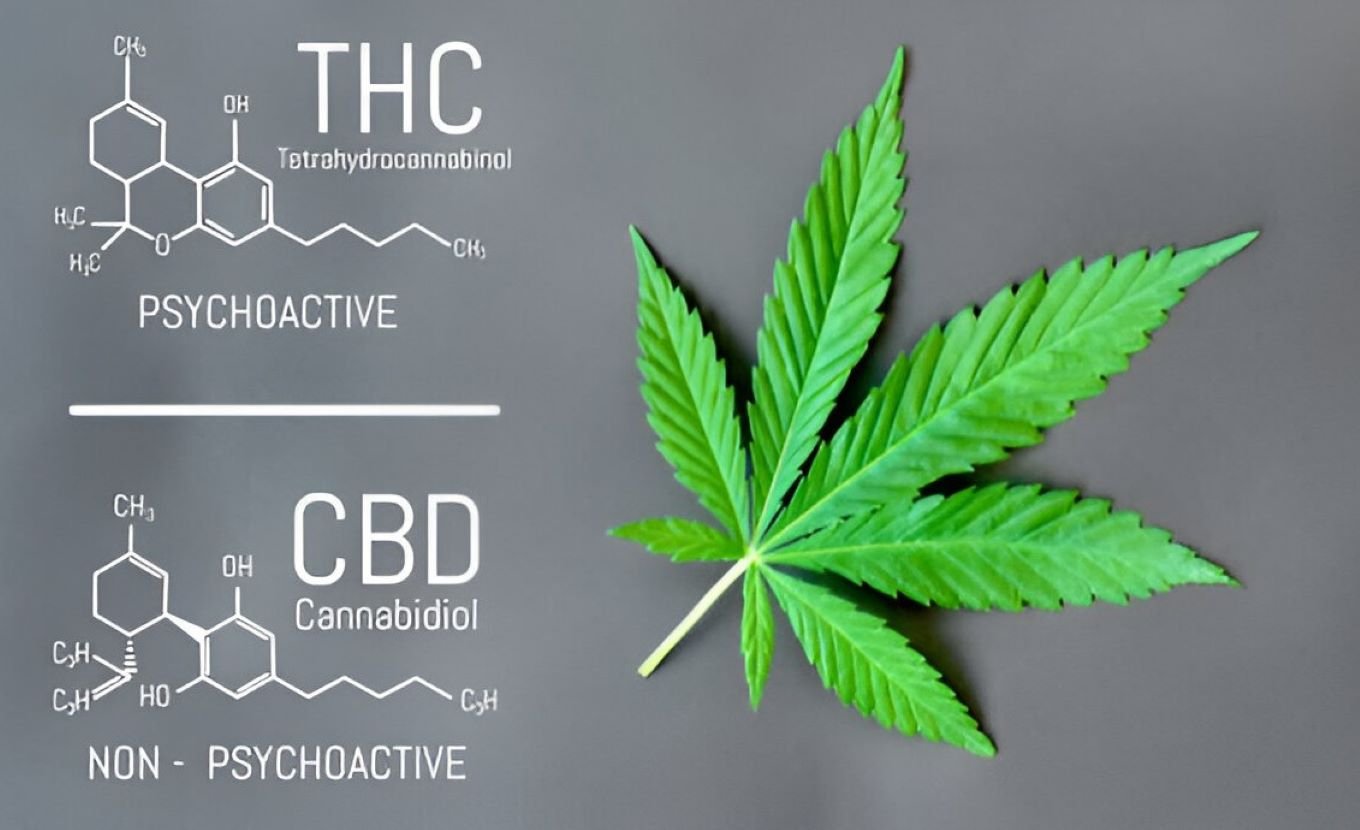As the search for natural wellness solutions expands, CBD (cannabidiol) and THC (tetrahydrocannabinol) have surged to the forefront of the health and wellness scene. These compounds, derived from the cannabis plant, have intrigued the public and medical community alike with their promising therapeutic properties.
This article explores the unique attributes of CBD and THC, their health benefits, and provides essential guidance for potential users.
Contents
Understanding CBD and THC
Cannabidiol (CBD) and tetrahydrocannabinol (THC) are two primary cannabinoids found in the cannabis plant. While they share the same origin, their effects on the human body are distinctly different. CBD is non-psychoactive, meaning it doesn’t produce the “high” associated with marijuana use.
THC, on the other hand, is psychoactive and responsible for the euphoric sensations typically linked to cannabis consumption.
Legal Differences Between CBD and THC
The main distinction between CBD and THC lies in their interaction with the body’s endocannabinoid system. CBD indirectly influences the body without binding to cannabinoid receptors, while THC directly binds to these receptors, resulting in its psychoactive effects.
Another significant difference is their legal status. CBD derived from hemp (containing less than 0.3% THC) is legal in many countries, while THC remains more strictly regulated due to its psychoactive properties.
Potential Health Benefits of CBD
CBD has gained attention for its potential therapeutic applications, including:
- Reducing anxiety and stress
- Alleviating chronic pain and inflammation
- Improving sleep quality
- Managing epilepsy and seizures
- Supporting skin health
CBD’s versatility extends to various consumption methods, such as oils, edibles, topicals, and inhalation products, allowing users to choose the most suitable option for their needs.
Exploring THC’s Medical Potential
Despite its controversial status, THC has shown promise in several medical applications:
- Pain management, particularly for conditions like fibromyalgia and multiple sclerosis
- Nausea and vomiting relief, especially for cancer patients undergoing chemotherapy
- Appetite stimulation for individuals with conditions that cause weight loss
- Potential anti-inflammatory properties
- Sleep aid for those with insomnia
It’s important to note that while THC can offer these benefits, its use comes with potential side effects and legal considerations.
Comparing CBD and THC for Specific Health Concerns
When it comes to specific health concerns, CBD and THC may offer different advantages:
Pain Relief: Both compounds show potential in managing pain, with THC generally considered more potent. However, CBD’s non-psychoactive nature makes it a preferred choice for those seeking pain relief without impairment.
Anxiety Management: CBD has demonstrated significant potential in reducing anxiety symptoms. While some individuals report anxiety relief from THC, others may experience increased anxiety or paranoia, particularly with higher doses.
Sleep Aid: CBD may help improve sleep quality by addressing underlying causes of insomnia, such as anxiety or pain. THC can induce drowsiness, but its psychoactive effects may disrupt natural sleep patterns for some users.
Appetite Stimulation: THC is well-known for its ability to increase appetite, often referred to as “the munchies.” CBD, on the other hand, does not typically affect appetite significantly.
Understanding Legal and Safety Aspects
The legal status of CBD and THC varies widely across different regions. It’s crucial for users to be aware of local laws and regulations before purchasing or using any cannabis-derived products.
When considering the use of CBD or THC products, it’s essential to consult with a healthcare professional, especially if you have pre-existing health conditions or are taking other medications. Start with low doses and monitor your body’s response to find the optimal balance for your needs.
Choosing the Right Product
With the growing popularity of CBD and THC products, it’s important to choose high-quality options from reputable sources. Look for products that have been third-party tested for purity and potency. Consider factors such as the extraction method, source of the cannabis plants, and the presence of any additional ingredients.
For those new to CBD or THC, starting with a lower potency product and gradually increasing the dosage can help minimize potential side effects and allow you to gauge your body’s response.
Conclusion
CBD and THC each offer distinct benefits and potential applications in health and wellness. As we continue to understand these cannabinoids better, they promise to reshape how we approach various medical and therapeutic challenges. Engaging with these compounds responsibly and legally can help maximize their potential while ensuring safety.



